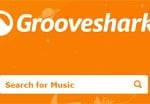[Most Recent Entries] [Calendar View]
Wednesday, November 12th, 2014
| Time | Event |
| 9:40a | Internet Pirates Always a Step Ahead , Aussies Say
The entertainment industries are clear. The current legal framework in Australia is inadequate in today’s market and tough new legislation is required to deter pirates and hold service providers more responsible for the actions of their users. ISPs, on the other hand, are generally concerned at the prospect of greater copyright liability, with many viewing content availability at a fair price as the sustainable way to solve the piracy problem. In order to better understand the opinions of the consumer, Aussie telecoms association the Communications Alliance has conducted a new study, the results of which were published this morning. The survey, carried out among a sample 1,500 Australians, reveals a public split roughly 50/50 on whether piracy is “a problem” but one that also believes that it will eventually end up paying the bill for solving it. A recurring theme for the prevalence of piracy in Australia is availability of content at a fair price, and the results of the survey appear to back up that belief. A total 60% of respondents said that improved entertainment product release strategies would lead to less piracy while 66% noted that cheaper, fairer pricing could achieve the same. Just 19% felt that Government regulation resulting in stiff penalties for file-sharers would do the trick, and when it comes to pushing anti-piracy responsibilities onto service providers, almost three-quarters felt the approach would be ineffective. Unsurprisingly the issue of cost is important for consumers, with 69% holding the opinion that “identifying, monitoring and punishing” ‘pirate’ subscribers would eventually lead to more expensive Internet bills for everyone. When questioned, 60% of respondents felt that the bill for dealing with piracy should be paid by the rightsholders. Privacy was also an issue for 65% of respondents who said that monitoring Internet users’ downloading habits would have “serious privacy implications.” However, the most popular reason for not shifting responsibility to ISPs is the fact that pirates are always a step ahead, with 72% believing that given rapidly changing technology, a way around any technical measures will always be found. “This research comes as the Government considers responses to its discussion paper on online copyright policy options. It paints a picture not of a nation of rampant pirates, but rather a majority of people who agree that action taken should include steps to reduce the market distortions that contribute to piracy,” commented Communications Alliance CEO, John Stanton. While the entertainment companies have their tough demands and the ISPs have their objections, it seems likely that a solution will be found in the middle ground. Better pricing and availability will have an effect on the market while educational campaigns will help to sway some of those sitting on the fence. A total 59% of respondents favored the latter approach. Whether ISPs will have to play a more active role remains to be seen, but given developments in the UK and United States, a notice-and-notice scheme to warn and educate consumers seems particularly likely. Source: TorrentFreak, for the latest info on copyright, file-sharing and anonymous VPN services. |
| 1:11p | Spotify Reminded of uTorrent Past After Branding Grooveshark ‘Pirates’
“We were both young when we first saw you, but now there’s more than 40 million of us who want you to stay, stay, stay,” Spotify said in a response. “It’s a love story, baby. Just say yes.” Swift did not, despite claims from Spotify CEO Daniel Ek that the artist was on track to pull in $6 million from Spotify this year if she’d left her content online. Presumably she’ll still get few million dollars from the streaming service, but in a statement yesterday Ek said that reduced availability for fans will mean more turn to illegal services such as the world most notorious torrent site. “And sure enough, if you looked at the top spot on The Pirate Bay last week, there was 1989,” he said. While that revelation wasn’t too much of a surprise, nor the highlighting of YouTube as a potential magnet for fans who don’t want to pay, the decision by Ek to flag up a competitor as a pirate holdout has poured yet more fuel onto the Swift fire. “[Swift's] songs are all over services and sites like YouTube and Soundcloud, where people can listen all they want for free,” said Ek. “To say nothing of the fans who will just turn back to pirate services like Grooveshark.”
“We would normally never comment on a competitive service and their dust-up with one of the world’s most popular artists. But as Spotify’s CEO — who it’s worth mentioning is the recent CEO of uTorrent — an app used by over 100M people, which had similar perception issues — called Grooveshark ‘a pirate service’ in his blog response to Taylor Swift today, we had to comment on that element,” Pearson said. On the history, Pearson is correct. In the early days of uTorrent Ek worked with uTorrent creator Ludvig ‘Ludde’ Strigeus before the pair sold up to BitTorrent Inc. in late 2006 and disappeared into the moonlight to create Spotify. Strigeus is a Spotify developer to this very day. Of course, mentioning uTorrent in retaliation to “pirate service” remarks doesn’t really help calm things down and only drags other third parties into the controversy. However, when looking at the spat from Ek’s perspective it’s not difficult to see why he’s irritated by Grooveshark. Search Spotify today for Taylor Swift’s 1989 and the only results returned are for cover versions by former cruise ship musician Robert W. Weber, aka Molotov Cocktail Piano. Search Grooveshark for the same and it’s an entirely different story.  The odd situation here is that while Swift put her own music on Spotify and will get millions back this year as a result, she has now stopped that revenue stream by removing it entirely. On the other hand she didn’t put her music on Grooveshark but it’s there for anyone to stream, until she has someone pull it down with a DMCA complaint of course. Why the Spotify retraction came before the Grooveshark deletion is anyone’s guess. In a 2013 interview, Grooveshark CEO Sam Tarantino reported that in 2009-2011 his service had 35 million users. Today Spotify has an estimated 50 million so calling the services ‘competitors’ is probably fairly accurate, despite the differences in their business models. Spotify say they have paid $2 billion to artists while Grooveshark claims that licensing deals in place with thousands of artists has resulted in “million” in payments. However, up to now neither the company nor Swift have mentioned a specific licensing deal for the singer’s music. Until they do, Daniel Ek is unlikely to withdraw his statement. Source: TorrentFreak, for the latest info on copyright, file-sharing and anonymous VPN services. |
| 8:55p | Dallas Buyers Club Pirate Agrees to Pay $14,000, But Why?
The company has pioneered mass-BitTorrent lawsuits in the United States and is estimated to have made a lot of money doing so. Earlier this year Voltage and Dallas Buyers Club LLC initiated lawsuits against alleged file-sharers of the Oscar-winning movie. Several hundred alleged downloaders have been targeted since. Most of these cases end up being settled for an undisclosed amount. This is usually a figure around $3,500, which is what the company offers in their settlement proposals. However, this week we stumbled upon something bigger. A few days ago a federal court in Oregon handed down a hefty judgment against a person who shared a copy of Dallas Buyers Club via BitTorrent. The order is a so-called consent judgment, the terms of which are agreed by both parties, for the sum of $14,000. “A Money Judgment in favor of plaintiff Voltage Pictures, LLC and Dallas Buyers Club, LLC and against defendant DOE-67.166.84.226 is awarded the sum of $14,000.00. This figure includes costs, fees and damages,” the order (pdf) reads.  The amount is unusually high for a consent judgment especially since the defendant, who remains anonymous, hired a proper attorney. If others get the option to settle for $3,500 or less, why would this person agree to pay four times as much? It’s safe to assume that the defendant in this case never got the option for a cheaper settlement and a good look at the original complaint may explain why. As it turns out, the movie makers collected a whole lot more dirt on the defendant. In an attempt to beef up their case, the movie studio compiled a list of 118 titles (pdf) that were shared by the defendant’s IP-address. This includes several TV-show episodes including Game of Thrones, as well as popular movies, software and music titles. “As can be seen from Exhibit 1, defendant is a prolific proponent of the BitTorrent distribution system advancing the BitTorrent economy of piracy,” they wrote in their complaint.  While it remains speculation, it’s likely that the Dallas Buyers Club makers used these collateral downloads to add extra pressure. In any case, it certainly didn’t hurt their negotiating position. This is not the only consent judgment won by Dallas Buyers Club recently. In a similar case in Oregon the company obtained $7,500 from another avid BitTorrent user who shared more than hundred other titles as well. Apparently, Voltage and Dallas Buyers Club LCC have found a rather effective way to increase settlement fees. TF asked Dallas Buyers Club’s attorney for a comment on the varying amounts, but we have yet to hear back. In any case, pirates are warned: Anything you download or share may be used against you in a court of law. Source: TorrentFreak, for the latest info on copyright, file-sharing and anonymous VPN services. |
| << Previous Day |
2014/11/12 [Calendar] |
Next Day >> |



